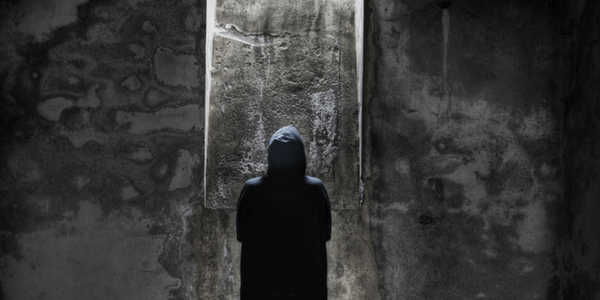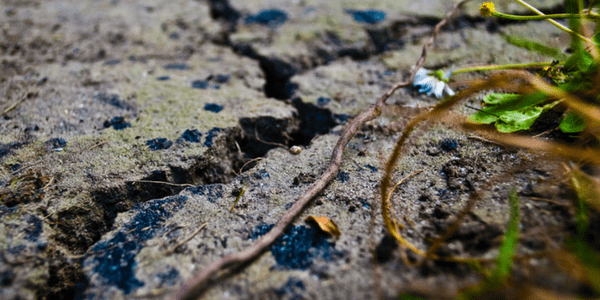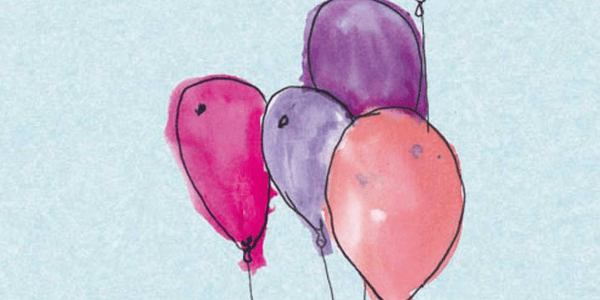
For many of us, the idea of discipline is attached to oppressive structures, such as strict religious observance or repressive regimes that our parents, loved ones, or other authorities subjected us to. Often discipline has been presented in the harshest possible light, as something imposed on us from the outside that contains us within a structure that diminishes our spirit. So, how does one cultivate a practice of self-discipline when the roadmaps we have been given pay homage to existing hierarchically oppressive structures?
However it may be perceived, discipline (particularly self-discipline) is a necessary component of spiritual growth. A simple commitment to our chosen path can garner us a great deal of power, not to mention that diligence and persistence are nearly the only ways to achieve excellence. Those of us who have decided to take the path less-travelled must become comfortable with forging our own way. This means that we must make conscious decisions about when, how, and why we do what we do. We often don’t have a path of practice nicely laid out for us, and in order to make material progress in changing our habits, building our power, and investing in and deepening our practice, we must dedicate ourselves to a course of material action.
Why build discipline?
So, why, when, how? When I choose practices for myself, I most often have some kind of goal in mind. I want to improve my ability to do x. Therefore, I choose practices that help me to achieve this particular goal. Because of my unique inclination, I tend to choose practices that are a little bit fun or wacky, because if I enjoy my practice, I am all the more likely to stick to it.
By nature, I am a very airy, intellectual person, and I have consistently challenged myself to become more grounded and more in-tune with my body. As such, I have chosen practices that help me to get closer to the earth and deeper into my physical self. For a while, I wanted to be literally closer to the Earth, and cultivated a series of exercises that would challenge me to feel my physical body, and lead me to use it more due to the physical set-up of my environment. One fine day, I sawed all of the legs off my furniture. I also decided to get rid of my bed. I began to sleep on increasingly harder and thinner surfaces until I was literally sleeping on the floor.
Being able to sleep on the floor was an incredibly invigorating practice. At first it hurt a lot, and I would wake up with sore muscles and bones. Eventually, my body began to adapt to the hardness. I felt that I needed to truly relax and align my body in order to be able to sleep at all, so I needed to let go of a lot of the stuck places in my body and cultivate new habits. Breaking up my habitual routine by changing my physical environment has been one of my most cherished practices, and the ways that I go about doing this have continued to evolve over the years. I decided to compromise by getting a bed when I met my partner (hey, sleeping on the floor isn’t for everyone), but I refused to have a physically raised bed, and we still sleep on a mattress on the floor.

Routine can be a healthy mechanism, and can be especially useful when attempting to grow spiritually and as a person. The absolute best way to get good at anything is to do it every day. If you want to be better at visualization, it might make sense to spend at least 5-15 minutes practising every day. If you want to be better at summoning energy, maybe you could get up at dawn for a week and cast a circle.
How little or how long your practice goes is totally dependent on you. We have chosen to walk our own road, and there is no one looking over our shoulders making sure we are doing what we’re supposed to do. In fact, we’re not supposed to do anything in particular. We do what we do because we want to, or because we need to, not because we are made to. We are the masters of our own destinies, and as such, we hold the power in our hands to consciously cultivate and craft routines that strike to the heart of our desire. What do you want to become? Start by being that for 5 minutes a day.
Related: Mirror magick and self-love, by Chrysanthemum White Alder
Ending a practice
Sometimes, self-discipline means modifying or ending a practice that isn’t working. For the longest time, I was deeply invested in my meditative practice. I meditated for two hours a day, one hour in the morning and one before bed. I was incredibly dedicated to this practice and made sure that I did it no matter what. I was regimented about it for over two years, and dedicated in a more relaxed fashion for the next five.
Meditation was both a positive and negative experience for me. As a person who has experienced trauma, it is sometimes unhealthy for me to spend too much time in contemplation, even if the goal of that contemplation is to find higher states of being or to become more temperate in my emotional states. For whatever reason, I can’t be both rigorously dedicated to my meditation and mentally stable.
So, I stopped meditating. At least, I stopped meditating like I was. I found that being so rigid about my meditation routine was having some side-effects, like making me feel superior to other people because of how “hardcore” I was being (which, in retrospect, was totally silly of me). After I decided to change my routine, I spent a lot of time focusing on other parts of my personality, such as my social self. I spent over four years working part-time in a coffee shop, to work on my compassion and forbearance. I have spent a year and a day experimenting with mind-altering substances. I have spent several years focusing on handicrafts for patience, and kitchen skills to cultivate gratitude and abundance.
Related: Mental health and magical practice: Learning to know thyself, by Chrysanthemum White Alder
Related: Pomegranates and trauma: Delving into the Underworld, by Xenia
Related: Zen: Simply Sitting, reviewed by Psyche

Beginning your own practice
Anything you do can be considered an occult practice, if you frame it in the right way. Looking at practice in this way can really help to tease lessons out of any experience, and can also free you to leave a situation or change what you are doing once you feel like you have learned what you can from it. We all need both challenge and change. We need to dedicate ourselves to our work while also recognizing when to let go of it and focus on something else.
I find that one of the most profound lessons that I have learned in the cultivation of my magick is that no one practice will work forever, or even consistently. The state of being is what I am actually trying to achieve, and the material stuff that helps get me there will morph over time. The real commitment is to the work itself, to investigating what is needed now, rather than rote repetition. The present moment will continue to show up in surprising ways, and our struggles will undoubtedly continue, as will our attempts to comprehend and transcend them. The work is the continued commitment to facing our unfolding story head-on, and continuing to strive towards our best selves within it.
If you are trying to craft a routine or a spiritual practice for yourself, you might first want to focus on what you want to cultivate in your life, and then create structures to bring little bits of that thing into your everyday routine. You might want to set up your environment and surround yourself with systems that will support and nurture your work. After you have the right setting, the only thing left is to try to stick to the routine in a rigorous way. That might not always mean that you do it every day, but you have to do it consistently. Don’t get discouraged if you don’t become a magus right away. It takes time to cultivate discipline, just like anything else in life.
The one major take-away that I would impart for sticking to a routine and cultivating discipline in your life is to not give up when you feel like you have failed. Allow yourself to fail, and then get up and get back to it. Every time you fail to exert discipline in your life is a moment where you may be tempted to give up on the whole endeavour. Try not to give up, even if you fail a hundred times. If the very next day you get up and try again, you are still building upon your practice. It might take a hundred times to get there, but if you are persistent, you will build up the skill and it will become easier.
Try to commit to having discipline in the small things, and it will add to the rest. I try to make my bed when I wake up. Even if I am working from home, I try to wash my face, get dressed, and have breakfast. I try to walk my dog and get started at around the same time. Tackling discipline in these little ways has built up my capacity for acting disciplined in other endeavours.
Related: How do you build self discipline?, by Psyche
Conclusion
Remember that when you begin to implement new structures in your life, there are going to be obstacles that you can’t always predict. The biggest lessons that I have learned over the years in this work are: Try to be gentle with yourself when you fail to measure up to your own expectations, be sure to stay persistent, even and especially when you fail, and finally, be honest with yourself when something isn’t working and be open to changing it. The routines and structures of our lives are not the goals themselves, they are means to an end. We must be sure to keep our eyes focused on what we really want, remembering to use our structures as the tools they are meant to be, discarding and refining them when our needs change.
Getting your mind, body, and spirit in alignment in order to carry out your will is no small endeavour. In fact, it is the very core of the work. Trying to get your whole being on board with your plans for personal development often involves a lot of subtle checks and balances. You will want to stay in touch with your body and what it needs. You don’t want to impose your will on the material like a tyrant, so stay in touch with the squishy parts of yourself, but don’t let them rule you. It may seem difficult at the start but it’s just like the world’s most complicated machine. Once you begin to get a sense for the controls, it becomes second nature.
Image credits: Bousure, Jeroen Bos, Patrick Franzis








